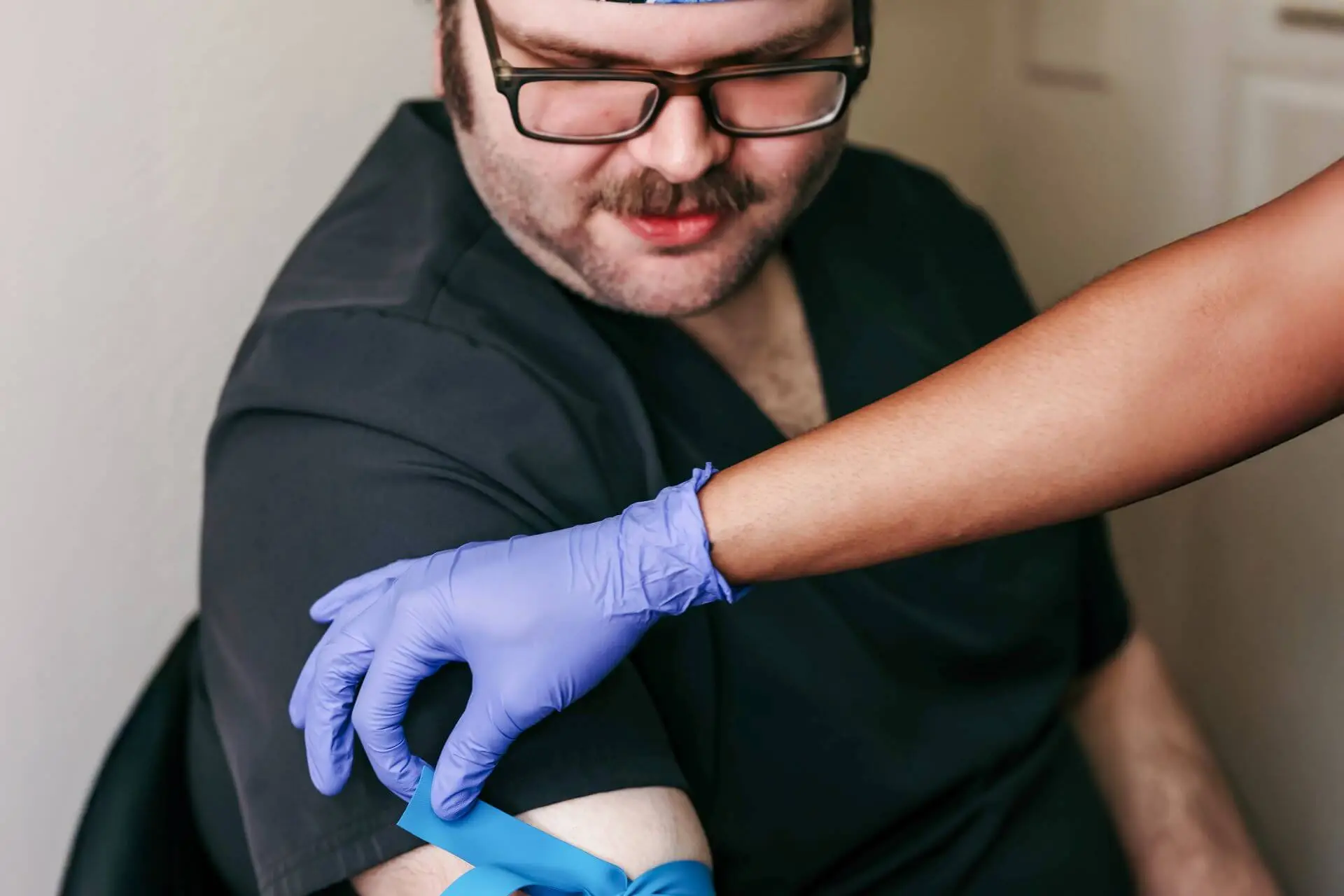Generally, medical assistants play a large role in a hospital setting because they assist doctors, nurses, and other healthcare professionals. As a medical assistant, you ensure hospitals run smoothly in day-to-day operations and work directly with patients. We’ve touched on the roles and responsibilities of medical assistants before, but today, I want to look specifically at what medical assistants do in hospitals.
Before working in a hospital, medical assistants can gain experience in a variety of settings, such as clinics, independent practices, or nursing homes.
However, with certification and determination, newly certified medical assistants can start working in large hospitals. The pay is good. The hours are often long. But, for many students, working in hospitals and interacting with patients is truly rewarding work.
Let’s look at the three major tasks for medical assistants in a hospital setting.
Medical assistants are a hospital’s go-to for thorough, timely clinical tasks.
Doctors and nurses frequently need assistance with patients, whether it’s direct assistance or screening and evaluation testing and procedures, e.g., electrocardiograms (EKGs) or blood tests. So, if we look for one answer that explains what medical assistants do in hospitals, it’s probably going to be clinical tasks and duties.
What does a medical assistant do in a hospital in clinical terms? To start, they take and track patient vitals, give medication, or guide patients through exams in a way that helps them understand and feel comfortable with the process.
Let me list a few critical clinical functions that your average medical assistant does in a hospital on a daily basis:
- Collects and prepares lab samples for testing.
- Assists physicians with wound care that prevents infection.
- Provides medication to patients in pain.
- Manages medication and tracks patient welfare throughout their entire hospital stay.
What a medical assistant does in a hospital empowers other healthcare professionals to do their best work. Doctors need information, labs need unadulterated samples for testing, and patients need advocates.
Medical assistants are skilled in administration and communication with third parties and patients.
“Administrative tasks” sounds about as exciting as a yawn, but what medical assistants do in hospitals is not boring. Administration is fast-paced. One moment, you may find yourself negotiating with an insurance company so that a patient can receive prompt treatment. The next moment, you may be welcoming patients and families into the hospital, listening to them, and carefully documenting symptoms and other information.
So, you’re going to meet a lot of different people from all different walks of life.
Of course, “administration” is shorthand for “keeping the ship headed straight,” and there will be moments of the day dedicated to more routine and mundane tasks like billing, organizing electronic records and patient charts, answering the phone, and scheduling appointments.
I’m going to list a few more administrative responsibilities below and point out the value of each:
- Hashing out details with insurers leads to positive health outcomes for patients and reduces stress for loved ones.
- Assisting patients in filling out paperwork genuinely helps those who are dealing with confusion, fear, uncertainty, fatigue, or cognitive impairments.
- Answering the phone in a friendly, cheerful voice could convince a patient to seek help or a staff member to go the extra mile.
Just look a little closer at what medical assistants do in hospitals, and you’ll see that administration, boring as it may sound, means something much deeper in a hospital setting: administration is about managing specific processes and procedures that help people recover and live happy lives.
Medical assistants need to be comfortable working beside doctors and nurses in emergency rooms.
It’s not going to happen every day, but if you want to be a part of a hospital system and make a larger salary, you have to be prepared to be assigned to work with doctors, nurses, and staff in an emergency room or intensive care unit.
What do medical assistants do in hospitals with high emergency room attendance? The answer is whatever is required of you. Typically, MAs take on a support role and do the following:
- Rapidly prepare examination rooms for incoming patients.
- Provide monitoring, transport, and support for patients admitted.
- Document patient information and health history in dynamic situations.
You’ll also monitor vital signs and assist in patient triage. Most importantly, you’ll be trained and certified to keep open and clear communication between the patient and medical personnel. Documentation is associated with administrative work, but it has a life-saving function, as well.
Clear documentation lowers the probability of mistakes. Access to medication and medical supplies, also an MA responsibility, is critical to the mission, which is to affect a positive health outcome. Doctors and nurses need the right medication and the right inventory at the right time to do their jobs well.
In so many words, what medical assistants do in a hospital has the potential to be very exciting and truly fulfilling.
Why choose medical assisting, and why a hospital?
Medical assistants have always been needed in the healthcare industry, and hospitals are now looking for well-trained medical assistants more than ever. The number of medical assistants leaving the healthcare field is growing every day, so the demand for skilled medical assistants is only going to increase.
Excelling as a medical assistant within a large hospital is a great way to move forward in your career.
What about the hours?
Medical assistants may have to work overnight hours. Additionally, some hospital shifts may require long work days. In this case, medical assistants can have more days off during the week. If you’re looking to switch up your traditional work schedule, working in a hospital can be a great fit.
Contact NTX Training Center today to get started.
Career mobility is what inspires and animates our training at NTX, and as a medical assistant, there are plenty of opportunities for you to move up in a hospital setting. We are here to prepare you for success, so enroll today, and let’s get started!
– Roxanne Lozano
Founder, NTX Training Institute


